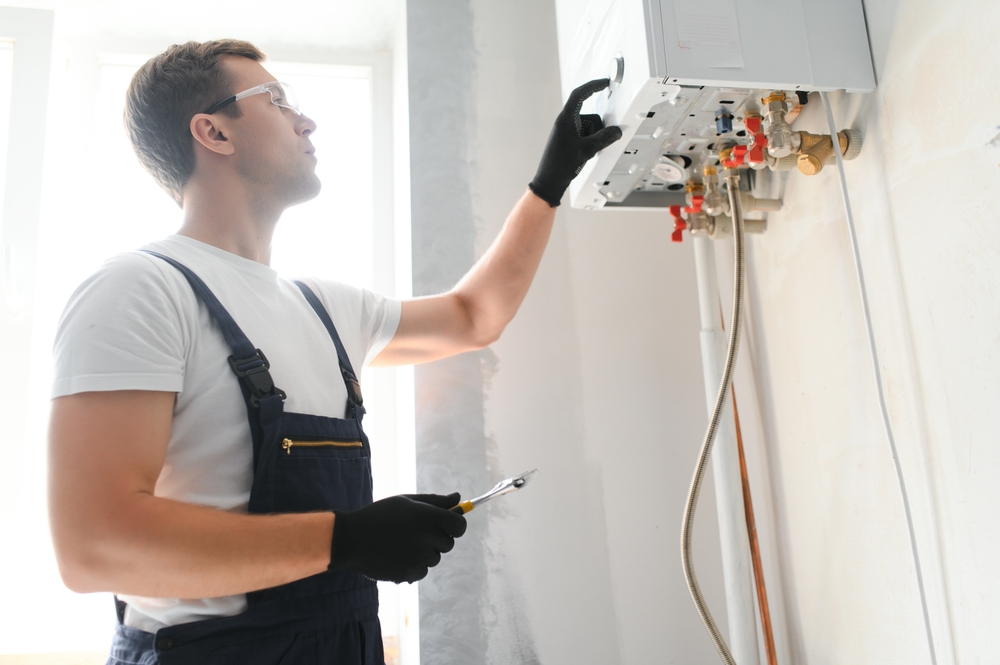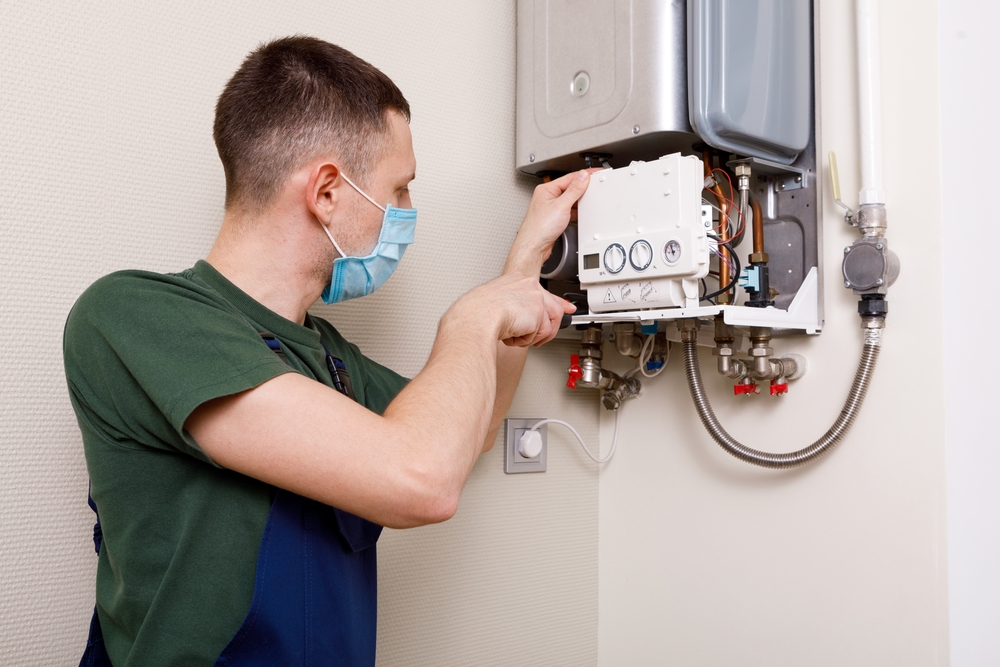How Often Do Landlords Need a Gas Safety Certificate?
Learn the importance of gas safety certificates and why landlords need them, and where to find qualified expert services.
As a landlord, there are multiple responsibilities that must be practiced, by neglecting this, landlords become open to legal issues and compromising the safety of their tenants.
In this blog, we will explore how often landlords need a gas safety certificate?
South West Gas Services is here to provide answers through our blogs and more importantly, our expert services for those based in and around the Somerset area. Considering the rise in energy bills in recent times, we believe it is our duty to provide the best options for you that can keep you warm and comfortable, without breaking the bank, or your bills.
With expertise in residential and commercial services just to name a few, we are confident that we can provide the best possible results at the most competitive prices.
What is a gas safety certificate?
Think of a gas safety certificate as a health check for your gas appliances like your cooker. It’s a formal document, produced by a qualified Gas Safe engineer, that confirms everything’s working as it should and poses no immediate danger.
Here’s the key facts about gas safety certificate:
What it’s for?
- It’s all about preventing nasty accidents – gas leaks, carbon monoxide poisoning, and explosions.
- It’s also a paper trail, proving that safety checks have been carried out.
What does it check?
- Everything gas-related: boilers, cookers, fires, pipework, flues, ventilation, burner pressure, and carbon monoxide levels.
Who can do it?
- Only engineers registered with Gas Safe are authorised to perform these checks and issue the certificate.
Why does it matter?
- Gas is serious business. Leaks and carbon monoxide can be deadly.
- This certificate is your assurance that things are safe.
- For landlords, it is a legal requirement.
Do landlords need to get a gas safety certificate once?

No. Landlord’s gas safety certificates are not a one time certification. By law, each of the properties that a landlord rents must have its own gas safety certificate that must be renewed annually.
If the inspection results in a fail, the visiting technician will inform what you need to do to ensure the gas system or appliance is at the legal requirement. In more serious cases, they will disconnect the system in question to prevent any possible health issues.
Once repaired, the landlord must book a new inspection and pass in order to continue to rent out the space.
In regard to tenants, they must receive a copy of the gas safety certificate within twenty-eight days of the check.
Why does a gas safety certificate need an annual renewal?
Annual renewal is required due to compliance, safety, and other reasons. Below are seven key reasons that facilitate an annual gas safety certificate.
Deterioration of gas appliances and pipework:
- Gas appliances and pipework can deteriorate over time due to wear and tear, corrosion, or improper use.
- Annual checks allow for the early detection of potential hazards, such as leaks, blockages, or faulty components, before they become dangerous.
Carbon monoxide risk:
- Carbon monoxide (CO) is a colourless, odorless, and highly toxic gas produced by the incomplete combustion of gas appliances.
- Annual checks include CO testing to ensure appliances are burning fuel efficiently and safely, minimising the risk of CO poisoning.
Ensuring ongoing safety:
- Even if a gas appliance was safe at the time of installation or a previous check, conditions can change.
- Annual checks provide ongoing assurance that the gas installation remains safe for tenants.
Legal compliance:
- The Gas Safety (Installation and Use) Regulations 1998 mandate annual gas safety checks for landlords in the UK.
- This legal requirement is in place to protect tenants and enforce safety standards.
Preventing accidents and fatalities:
- Gas leaks and CO poisoning can lead to serious accidents, including explosions, fires, and fatalities.
- Annual checks play a vital role in preventing these incidents and protecting lives.
Maintaining tenant confidence:
- Providing tenants with a valid gas safety certificate demonstrates a landlord’s commitment to their safety and well-being.
- This helps build trust and confidence between landlords and tenants.
Liability protection:
- In the event of a gas-related incident, landlords who have failed to comply with the annual gas safety check requirement may face legal action and significant financial penalties.
- Having a valid certificate provides evidence of compliance and reduces liability.
What is the process of a gas safety certificate inspection?
There are 8 general steps that a gas safety certificate inspector will follow. Variations and differences may occur for commercial inspections. However, domestically, you can expect the following:
1. Visual inspection:
The engineer begins with a thorough visual inspection of all gas appliances, pipework, and flues. They look for signs of damage, corrosion, leaks, or improper installation.
2. Appliance checks:
Boilers:
- They check the boiler’s operation, including the burner, ignition, and flame.
- They inspect the flue for blockages or leaks.
- They test the flue’s effectiveness in removing combustion gases.
Cookers:
- They check the burner flames for colour and size.
- They inspect the gas supply pipe and connections.
- They ensure the cooker is properly ventilated.
Gas fires:
- They check the fire’s operation, including the ignition and flame.
- They inspect the flue and ventilation.
- They ensure the fire is properly secured.
Other appliances:
- Any other gas appliances in the property will also be checked.
3. Gas pipework inspection:
- The engineer inspects the visible gas pipework for leaks, damage, and proper support.
- They may use a gas leak detection device to check for leaks that are not visually apparent.
4. Flue and ventilation checks:
- Proper ventilation is crucial for the safe operation of gas appliances.
- The engineer checks that flues are clear and properly installed.
- They ensure adequate ventilation is provided for the appliances.
5. Burner pressure checks:
- The engineer checks the burner pressure to ensure the appliances are burning gas correctly.
- Incorrect burner pressure can lead to inefficient combustion and the production of carbon monoxide.
6. Carbon monoxide (CO) testing:
- The engineer uses a CO analyser to test the levels of carbon monoxide around the appliances.
- This is a critical step in ensuring the safety of the occupants.
7. Safety controls:
- The engineer checks the operation of safety controls, such as flame supervision devices and pressure relief valves.
8. Documentation and certification:
- After completing the inspection, the engineer records the findings on a Gas Safety Record (CP12 form).
- This record includes details of the appliances checked, any defects found, and the engineer’s registration number.
- If the appliances are deemed safe, the engineer issues a gas safety certificate.
- If any defects are found, the engineer will advise on the necessary repairs. In some cases they may have to disconnect the appliance.
Gas safety expert installation services

South West Gas Services thanks you for taking the time to read our blog. We hope that the information we provided has given you all the answers you need when it comes to the question ‘How often do landlords need a gas safety certificate?’
Our family run business, based in Somerset, has been an established, trusted, and respected provider of specialist gas and oil fired heating services and solutions to our local communities and beyond since 2016.
Our expert team of committed engineers can provide support to homeowners, business owners, landlords and local authorities alike. All the systems we install all meet within the current British Standards, whilst only using quality approved products.
Our engineers have the right qualifications:
- Gas Safe Registered
- OFTEC registered
- WIAPS accredited
- G3 Unvented certified
- DBS checked
From full commercial Plant room consultations and installations to domestic reactive breakdowns, we can provide the solution. Our engineers are also certified to work with many other heating fuels, including LPG, Oil and renewables such as solar, ground source heat, and air to water heat.
So begin your enquiry by getting into contact with us today. You can find our details below.
Opening hours:
8.30am – 5pm Monday to Friday (excluding bank holidays)
Address:
Rhiwbina Brent Road,
Cossington,
Somerset,
TA7 8LF
Phone:
01278 456876
Email:
contact@southwestgasservices.co.uk
